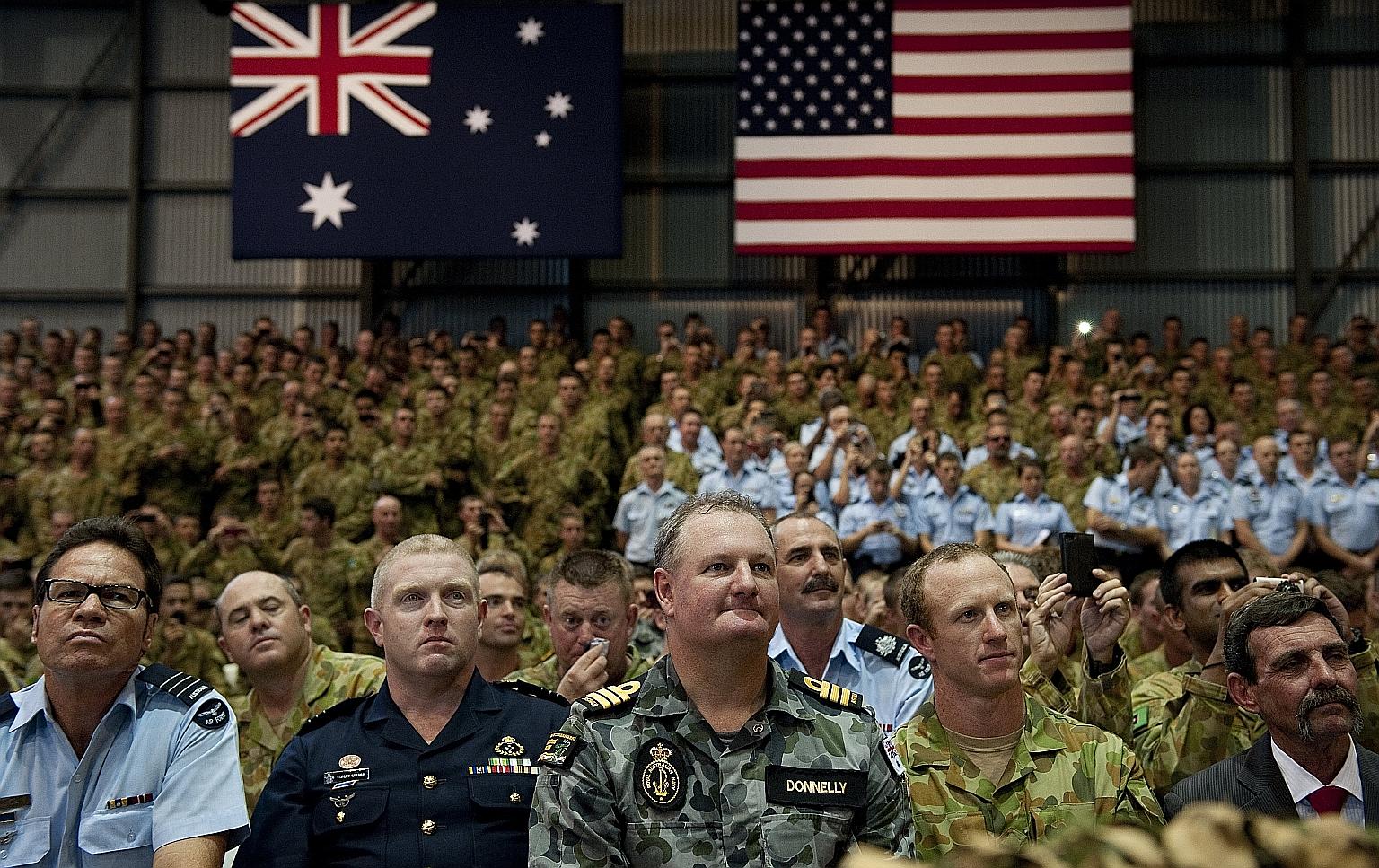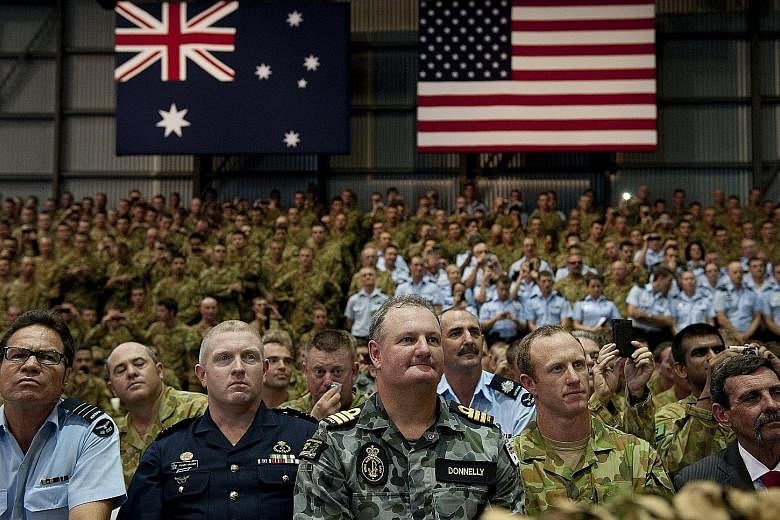SYDNEY • For Australia, the election of President-elect Donald Trump has raised fears about the previously unthinkable: the fracturing of the more than 65-year-old alliance between Canberra and Washington.
Since Mr Trump's surprise victory last week, analysts and former political leaders in Australia have warned that the future of the alliance - long considered the bedrock of Canberra's security outlook - is in uncertain territory.
Commentators say Canberra will have to adopt - or at least prepare for - a more Asia-focused, self-reliant outlook, with greater defence spending and an emphasis on bolstering bilateral ties with countries such as Japan and South Korea.

Indeed, the federal government yesterday signalled that it will support China-backed trade deals following widespread opposition in Washington - including from Mr Trump - to the proposed US-led Trans-Pacific Partnership.
Canberra has expressed support for a proposed Free Trade Area of the Asia-Pacific agreement, which would cover members of the Asia-Pacific Economic Cooperation (Apec), and a separate deal, the Regional Comprehensive Economic Partnership, which would exclude the United States.
Ahead of this weekend's Apec Summit in Peru, Australian Trade Minister Steve Ciobo said yesterday that "free trade will be at the front of everyone's minds". "With the future of the Trans-Pacific Partnership looking grim, my ministerial counterparts and I will work to conclude a study on the Free Trade Area of the Asia-Pacific, which sets out agreed actions towards a future free trade zone," he wrote in The Australian Financial Review.
The shifting economic alliances come amid unusual speculation about the future of the broader relationship between Australia and the US. The problem for Canberra is not only that Mr Trump has threatened to overhaul traditional US alliances in the region, but also that his win weakens the "shared values" that have long underpinned the relationship.
Australia's post-World War II alliance with the US has bipartisan support and the relationship has only increased in recent decades, including the recent stationing of up to 2,500 US Marines in Darwin. Australian troops have fought alongside the US' in each of its foreign wars, including the wars in Vietnam and Iraq which triggered significant domestic opposition.
But the election of Mr Trump has led to intense questioning about the alliance's solidity and the potential fallout if the US weakens its commitment to the Asia-Pacific.
Since the election, Australian Prime Minister Malcolm Turnbull has insisted that the alliance will not be affected and that it is stronger than any single politician.
A former investment banker and self-made millionaire, Mr Turnbull suggested that the President-elect is a pragmatist and that they share a can-do attitude because of their business backgrounds.
But the opposition Labor party this week signalled that Mr Trump's election marked a "change point" and could push Australia to focus on ties with Asia. "(We) face the possibility of a very different world and a very different America," wrote Labor's foreign affairs spokesman Penny Wong in Fairfax Media on Tuesday. "For Labor, the fact that the alliance with the US is central to Australia's foreign and security policy has never meant that we trade away our values."
Analysts warned that Australia should at least start preparing for a world in which it can no longer rely on a seamless alliance with its most important strategic partner.
Former Australian prime minister Paul Keating called for Canberra to preserve basic aspects of the alliance, such as intelligence sharing and close consultation over military actions, but to adopt a more independent foreign policy.
"What we have to do is make our way in Asia ourselves," he told ABC Television.
"The foreign policy of Australia is basically: We have tag-along rights to the US... It's time to cut the tag."


